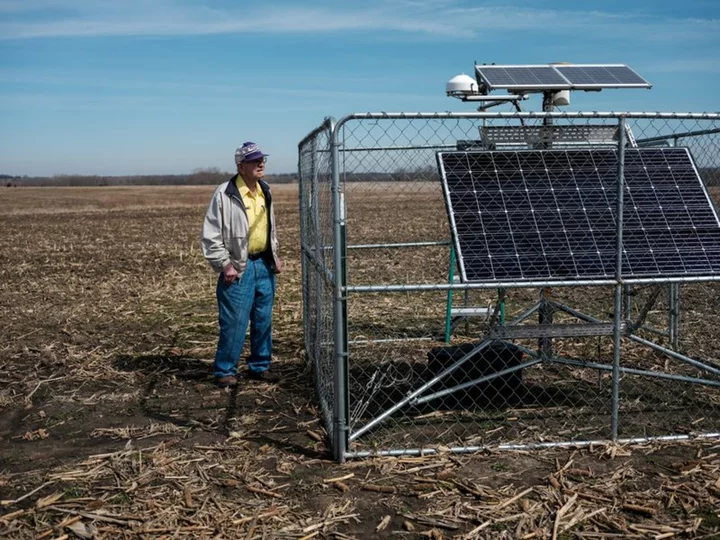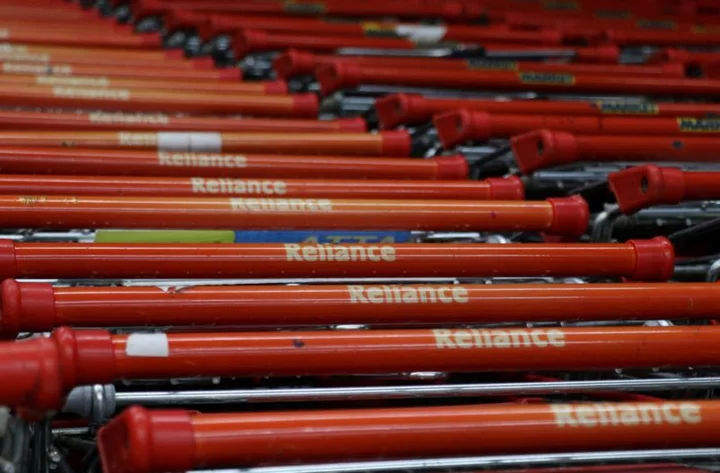By Tim McLaughlin
NextEra Energy's $5.4 billion retirement plan for employees has suffered about half a billion dollars in losses this year as outsized bets on company stock soured, reflecting ongoing risks of corporate 401(k) policies that encourage concentrated positions in company shares.
America’s largest renewable power company is among several U.S. energy and utility companies, including Exxon and Southern Company, that continue to promote big, concentrated bets on company stock in worker retirement plans.
A Reuters analysis of retirement policies and stock performance data, along with interviews with retirement and finance experts, show a small but prominent corner of Corporate America still plays a risky game with company stock in employee benefit plans even after high-profile corporate implosions like the $63 billion Enron collapse.
Nearly 50% of the investments in NextEra’s employee-funded 401(k) retirement plan are in company stock, the highest among all 30 companies in the S&P 500 Utilities Sector. The total company stock balance across the index is $13 billion, or 14% of $90.4 billion in investments, according to a Reuters analysis of 2022 financial statements.
NextEra's strategy, ill advised by financial advisers and out of favor in most corporate 401(k) plans, generates tax deductions for corporate headquarters while workers shoulder all the risk of a concentrated position in a single stock.
By contrast, 92% of U.S. employee retirement accounts contain no home-company stock, with many companies either not offering their shares for those plans or limiting them, according to a Vanguard Group study of 2022 allocations by 5 million 401(k) participants.
NextEra policies incentivize workers to invest retirement funds in its shares. It has no limit on how much employees can allocate to company stock, matches worker contributions in company shares instead of cash, and gives workers the option to reinvest dividends on those holdings into even more stock, according to the retirement plan's financial statements.
NextEra declined to comment on its use of company stock in employee 401(k) plans. "We have nothing to offer," a company spokesperson said.
Not diversifying "is a crazy thing to do,” said Alicia Munnell, director of the Center for Retirement Research at Boston College. “If things go really badly at your company, you can lose your job and your retirement savings.”
NextEra's reliance on its shares has paid off big for workers over the past ten years as the company grew rapidly, delivering a total return of 325%, compared to the S&P 500's return of 212%.
But employees have been stung more recently as higher interest rates increased the cost of the company’s ambitious roll out of wind and solar energy. Utility stock dividend yields also look less attractive to investors in a higher interest rate environment.
Since the end of 2021, NextEra shares have slumped 27%, compared to a 11% decline on the S&P 500 Utilities Index, slashing the value of employees' NextEra shares by more than $500 million, according to the plan’s financial statements.
Last year, employees booked nearly $66 million in actual losses from selling shares, financial reports show.
Enron’s $2.14 billion retirement plan had 62% of its assets invested in the company’s common and preferred stock at the end of 2000, months before it went bust. Employees took massive losses because they were prohibited from selling their shares amid disclosures of deepening financial problems, and then they lost their jobs.
More recently, SVB Financial Corp's bankruptcy in March after the collapse of Silicon Valley Bank, erased nearly all of the value of the parent company's stock.
Kristin McKenna, president of Darrow Wealth Management in suburban Boston, said many times her new clients are unaware of the concentrated positions in their retirement accounts.
"It's the rule, not the exception," McKenna said. "If we saw a concentration of more than 20% in a single company stock, we would definitely tell them it's a big risk."
SHIFT IN STRATEGY
In recent years, many U.S. publicly-traded corporations have imposed limits on the concentration of company shares in retirement plans and offer more diversified plans that include inexpensive target-date funds, which automatically allocate stocks and bonds based on investors’ age and dial down risk as they approach retirement.
But there are a number of large, noteworthy holdouts in the energy and utility sectors, SEC disclosures show.
Exxon’s retirement savings plan held $8.4 billion in company stock at the end of 2022, or 40% of $21.1 billion in total investments. That bet has been a laggard compared to a more diversified investment mix. Exxon's total return of 101% trails the broader S&P 500 Index’s 212% return over the past decade.
Exxon declined to comment.
Employee retirement plans overweight with stock help companies by providing a tax-break opportunity for headquarters. Corporations, for example, can take deductions on dividends paid on company shares held by employees in their retirement accounts. This is most helpful to companies in the utility and energy sectors, which have among the highest dividend payouts and the highest concentration of home-grown stock in their 401(k) plans.
Few companies disclose the impact of those tax deductions, but the ones that do say the impact is large enough to cut their 21% federal tax rate, according to filings with the U.S. Securities and Exchange Commission.
Southern Co, for example, has reduced its tax rate by as much as 4 percentage points in recent years. The Atlanta, Georgia-based utilities company’s $7.65 billion retirement plan had 38% of total investments in company stock at the end of 2022, SEC disclosures show. The company did not return messages seeking comment.
In 2021, Dominion Energy Inc placed a 20% limit on company stock holdings in its retirement plan for salaried employees, part of a commitment to diversification, said company spokesperson Ryan Frazier.
Nevertheless, recent losses in the Dominion plan have been heavy. At the end of last year, the plan held Dominion stock valued at $687 million, or 18% of $3.9 billion in assets. Those shares had a cost basis of $758 million, meaning employees were sitting on $71 million in losses, SEC disclosures show. Since then, Dominion’s share price has dropped 22%. `
Keith Rasmussen, a retired geologist, said he still feels the financial repercussions of holding big bets on company stock in his retirement plans.
His first jolt came during a short stint at the oil and gas arm of Enron, when he sold several thousand shares at $5 apiece. Those shares had an average value of $35 when he received them, he said.
And then more than a decade later, Rasmussen took heavy losses when a drop in natural gas prices crushed the value of his retirement plan holdings in Chesapeake Energy Corp, whose retirement plan held 46% of its assets in company stock at the end of 2013.
“My 401(k) was cut in half,” Rasmussen, 68, recalled in a telephone interview. “We can pay our bills, but we’re restricted a little bit on things we wanted to do and planned on doing.”
(Writing by Richard Valdmanis; Editing by Anna Driver)









